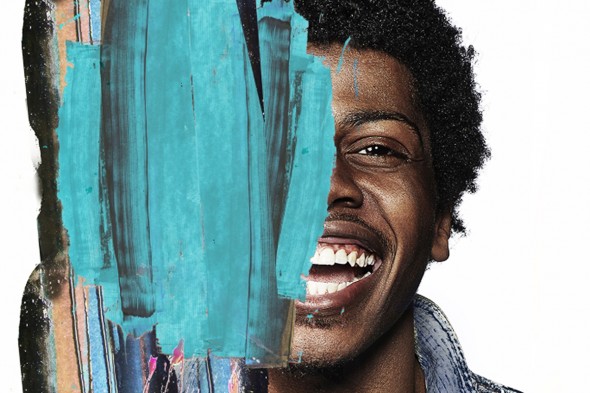Review: ‘Passing Strange’
“True love can only exist after the revolution.”
I went to see the UIC Theatre’s musical “Passing Strange” last past weekend. When I got there, to my surprise, I was told that I had a general admissions ticket and would be standing for the duration of the production. I quickly found out that the musical, actually a rock musical, would be similar to a concert and that it would be worthwhile to stand. This turned out to be true.
From the very first number to the last, the musical was loud, engaging and interactive. As it unfolded, I felt a part of the journey. Several times members of the ensemble fled into the crowd, talking to individuals in the audience, even jumping on the railings of the seating area.
Growing up an out-of-place black kid myself, I related to the themes of the musical. It seems rare for a school production to depict such a unique voice such as Youth’s, the hero. Youth struggled with racial stereotypes that he felt held him back, left his home, and struggled with finding his true self and relinquishing his love for music. A complex conflict between leaving home yet needing to remember that home is where the heart is — an aspect of life that many of us have gone through. With that being said, even if you aren’t an out-of-place kid or into rock music, this musical is still worth seeing.
In fact, the musical was unlike any I’ve ever seen — myriad suggestive references to sex, drugs, racial stereotypes and religious criticism. It reminded me of something Spike Lee would have directed pre-9/11. Other than the musical being controversial, I say that because a) a majority of the cast members were black students, something I was overjoyed to see, and b) the musical chronicled the journey of a black kid seeking his identity and c) it took the older, less diverse audience members (who had general admission seats, unlike myself) several minutes to loosen up to the raunchiness of the musical.
At times, the musical felt overtaken by the big cast, but as the story kept unfolding, it became more organized and fixed on the coming-of-age of Youth. The performances of the three main leads of the musical were most pleasurable to watch. The narrator, Jo Schaffer, who is later revealed to be narrating his life (the musical is autobiographical) and the best rock ‘n’ roller of the night. I was shocked that Schaffer’s voice sounded exquisite and unharmed throughout the entire show. It was a joy to hear him rocking out for two hours.
David Dowd, who played Youth, has the ability to become a major actor in his future. In all seriousness, I would cast him in any coming of age film, as likes of Michael Cera or Jonah Hill.
The most emotional performance of the night was played by Tiffany Fulson, who portrayed Youth’s mother. I won’t ruin it, but all I’m going to say is that you’ll be on the phone with your mom by the time you leave the theater. Kudos to black excellence! Fulson delivered a real portrayal of a mother longing for her son’s return.
All in all, should you go out and see this production? Most definitely. It’s worth the time and money to see your college peers doing things many people wouldn’t be able to. Importantly, the musical holds impactful messages regarding identity, passion, family, and values which can be relatable to all college students who have left home. The music performed by a live band on the back of the stage was nostalgic of the punk era, which felt refreshing in this death of music age we live in.

